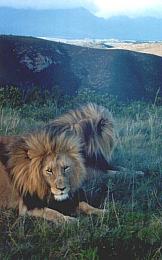|
 The
VigilanceVoice
The
VigilanceVoice
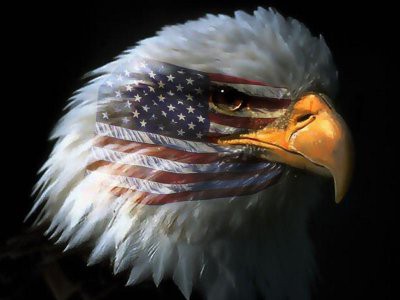
VigilanceVoice.com
Monday--July
8, 2002—Ground Zero Plus
299
War Is Hell--Literally--
But Vigilant Phone Calls: A Step In The Right Direction
by
Cliff McKenzie
Editor, New York City Combat Correspondent News
GROUND ZERO, New York City, July 8--This isn't a pleasant story.
No war story is. War is about uprooting Hell. It's about
digging into the bowels of Hell and trying not to gag over its stench.
But there is hope. A phone call can be the beginning to an end of
war's Terrorism.
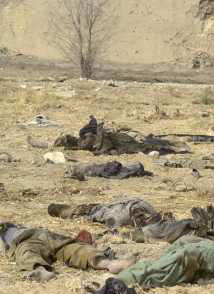 |
My guts wrenched this morning as I read a
descriptive story in the New York Times of the carnage resulting
from an attack on the village of Kakrak in Afghanistan. Faulty
intelligence claimed the village had fired upon American planes and in
retaliation a bombing raid, followed by ground troops, decimated the
village.
There were no anti-aircraft guns at the
village--just the bloodied body parts of women and children and older men
celebrating a wedding. The villagers had been sitting on the
roof of a building, enjoying the cool air when an AC-130 gunship tore them
apart with canon fire, killing 48 and wounding 117.
At dawn American and Afghan troops rushed into
the village, expecting to find the "enemy." Instead, they found
pools of blood where young children had been killed, and saw parts of
bodies hanging in olive trees where they had been blown by the force of
the attack.
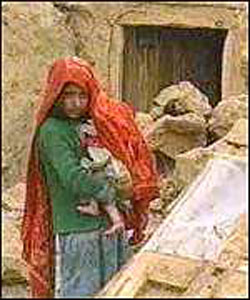 |
|
Afghan mother |
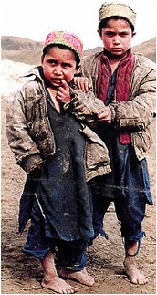 |
|
Afghan boys |
American officials apologized for the
mistake. President Bush called President Hamid Karzai of Afghanistan
to express his sympathy.
The attack was against the home province of
Taliban leader Mullah Muhammad Omar. It was suspected an Afghan gave
false information, a form of vendetta against the villages for being
pro-Taliban. An investigation is underway.
What struck the core of my being was the
description of the dead children by New York Times writer Carlotta Gall
who was an eye witness to the slaughter.
It took me back to scenes of blood and
guts, buried deep in my own memory in another war that cost the lives of
more than 1.5 million Vietnamese.
I was a Marine Corps Combat Correspondent,
charged with two responsibilities--fight and kill, then write and cry.
My first duty was to be a Marine, my second, a journalist.
I had to switch on my blood-and-guts hat one minute,
and when the smoke cleared, don the writer's cap and reflect on the horror
of war and its cruel aftermath. Obviously, I had to edit
out the slaughters, and the pain, and the anguish of human lives being
sacrificed, and replace those wounds with the glorification of war.
It wasn't an easy task.
On one of my first of more than 100 combat operations
during my tour in Vietnam, we shelled a village before assaulting it.
It wasn't unlike the village of Kakrak, a relatively primitive village,
comprising grass hooch's and populated by rice farmers who wore no shoes,
squatted as they talked, and spoke a language I could not understand.
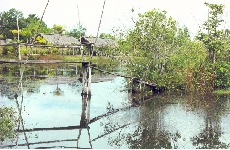 |
| Serene
Vietnamese village before the War |
As we swept through the shattered and torn village,
ripped and smoldering from the mass of artillery shells used to "soften"
the objective, we found no enemy. Just women and children and
old men, crying, weeping, wailing over the dead and wounded.
The first victim I saw in war was a young child, no
more than four or five. It was sitting against a skinny tree,
propped there by its mother who was looking for the child's head.
A piece of shrapnel had severed it.
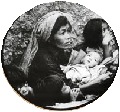 |
As we grew closer, rifles at the ready, not sure
what to expect from the village, the woman screamed at us. She
reached down and grabbed her son's head from the dirt. It was
covered with flies and congealed blood. She held it up above her
frail arms, shouting at us. Her blackened beetle-nut stained teeth
made her look toothless as she ran toward us, cursing us in a universal
language we didn't have to understand to know the message she was
delivering.
Then she ran back to the child's body and knelt next to
it, placing the severed head on the torso, crying, wailing, as though by
putting back in its proper place it might attach itself and bring back the
life our artillery had taken.
I remember kneeling down and raising my camera to take
a picture of her and the dead child. I remember putting my finger on
the shutter release of my Nikonos, framing the horrible scene of a mother
trying to resurrect her child's life, preening the child's face with her
blood-soaked hands, kissing it. She looked up at me.
I'll never forget her eyes. They were full of hate and pain,
confusion, anguish.
I couldn't pull the shutter release back. I
froze. It seemed she was pleading with me in the dead silence
to not take the picture, to not soil the sadness and brutality already
issued upon her. Then she took her straw conically-shaped hat
hanging on her back and placed it on the child's head so the face could
not be seen.
I didn't take the picture. I didn't have
to. My mind took it. My soul took it.
I thought about that scene as I read the article on how
the American forces rushed into the village expecting to find the "enemy"
and only found the ugliness of human desecration. I thought about
those young men with rifles pointed and fingers itching on the trigger,
expecting to engage the enemy in a fierce battle for glory and freedom,
only to be met with blankets of children's blood, of old women crying over
the bodies of their sons and daughters, of families ripped apart by a
"mistake."
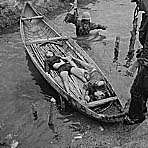
|
To survive in war, one has to have a
cast-iron stomach. Scenes like those at Kakrak have been
replayed in every war, in every conflict where human beings seek to kill
other human beings. There are no sidelines in war, no
safe zones for the innocent.
That is the sad commentary about war--it cannot
exclude the innocent from its violence or protect them from the jaws of
death.
The village chiefs want the U.S. to notify them
before any attack so the innocent can be removed from harm's way.
That will probably never happen. Surprise is the key to
military strategy. However civilized it might be to let people
know they are going to be attacked, the uncivilized way of war will
prevail. More children and innocents will be killed.
Does this mean we shouldn't fight? We
shouldn't risk the tragedies that happened in Kakrak?
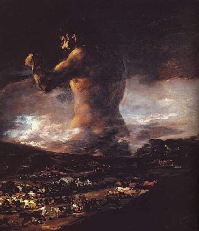 |
|
Goya's painting 'War is Hell' |
I can't answer that question. It's
ultimately a very deep and personal question. I chose, in my youth,
to fight for what I believed was the freedom of a people living under an
oppressive, tyrannical state. That belief carried me
over the bowels of Hell, it kept my psyche from shattering whenever I saw
the "innocent" maimed or butchered by errant shells, or the madness of
war's bullets.
Today, those memories of a time long ago haven't faded
for me. They are my driving force to promote Vigilance rather
than Terrorism. My big question isn't whether war is
Hell--because it is--but rather, if people around the world stand up for
Vigilance as they never have before, will war be reduced?
I have to affirm the answer. I have
to believe if just one one- thousandth of a percent of destruction can be
reduced by Vigilance Awareness, then whatever I'm doing will be worth
everything I've done.
Am I anti-war?
No. No matter how we try and
whitewash the human being's character, there will be those who believe the
oppression and tyranny of others is their right. If there isn't a
force to counter such Terrorism, then the bullies of the earth will take
over.
Last night, on Discovery Channel, I witnessed a
phenomenal program called: Lions Battlefields. It was
all about how lions mark their territory, and hunt down their prey.
The producers used aerial shots similar to a military surveillance plane,
with grid markings so the "enemy" could be seen by infra-red and heat
sensors.
From an eagle's eye view, you saw the lions
creeping up and outflanking the Zebras. You watched them ready
for attack and then spring at the precise moment.
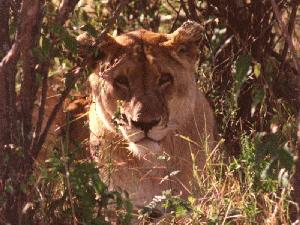 |
Using heat sensors, the cameras showed the
"territorial borders" of the primary or 'protector' lion.
He marked the area around his pride. The cameras revealed a large area
that no other male lion was to enter without fear of death, or, at the
very least, a fierce battle.
Nomad lions, the males who had to live
outside the prime lion's territory, waited for a precise moment to attack
the leader of the pride. When they encroached upon the
territory by crossing the border, the protector male rose to do battle.
It was an awesome replay of how mankind and
womankind set up their borders, and how willing they are to fight to the
death for
their territorial rights.
When the Nomad lions attacked the primary male,
the females helped their "husband" fight off the attackers.
New male lions who take over a pride kill all the cub lions so they can
spawn their own. The females were fighting for their
children's lives.
Nature is constantly at war. The one
thing I am reminded about by watching Discovery is that mankind and
womankind have no edge on the commodity of violence. Nature is full
of it. Truly, it is a dog-eat-dog world.
But we, as human beings, allegedly have a higher
calling. We have been given the choice not to kill, where animals do
it by nature's instinct.
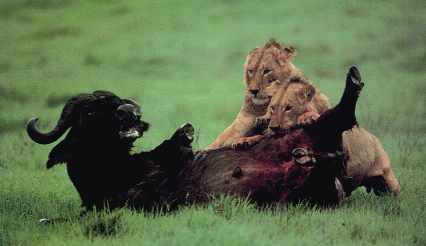 |
Vigilance, ultimately, involves the
evolution of our "natural" instincts to "kill." I believe that
Terrorism is our primal nature. The Fear, Intimidation and
Complacency that comprise Terrorism is the gift Nature gave us so we
could survive a harsh world. But Vigilance--the Courage, Conviction and
Right Actions we learn to take through choice--are gifts from a Higher
Power.
This choice elevates us out of the jungles,
converts us from dog-eat-dog, into compassionate beings, struggling to
evolve beyond our primal natures.
 |
Mother Nature didn't pick up a phone and call the
lionesses and apologize when the water buffalo attacked the pride--their
mortal enemies--and
crushed three of her baby lions Mother Nature
doesn't cry or wail when a frog eats a bug, or when a python coils itself
around a pig and crushes it to death.
Mother Nature is kind of like Martha Stewart.
Everything is food. Everything can be eaten. The
strongest survive. The weak fall by the wayside.
God, Jesus, Buddha, Mohammed, et al, don't send an "I'm
so sorry messenger" to soothe your heart after your child is crushed
by an errant neighbor backing out of the driveway or is stricken by some
rare disease.
George Bush, whether you like him or not, whether
you think he was politically motivated or whether he earnestly felt
sorrow, picked up the phone and called the leader of another nation and
globally apologized for the deaths of 48 people out of a total of 6
billion who claim space on this earth.
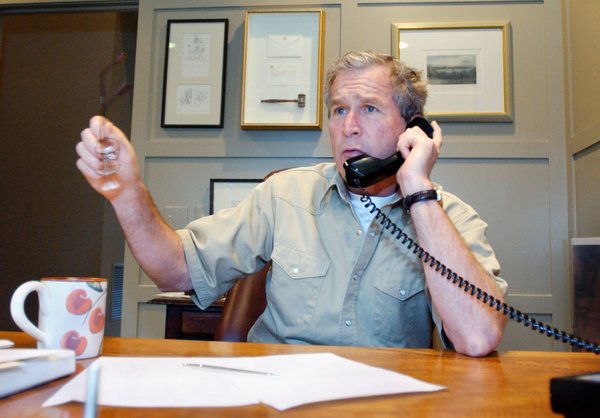 |
Now, that's a sign of Vigilance. Even
amidst the horror of it all, mankind and womankind are struggling to
evolve. We're attempting to find the Courage, Conviction and
take the Right Actions necessary to live under the Shield of Vigilance
rather than the storm clouds of Terrorism.
Maybe one day children and the innocent will be safe
from war.
That day can be brought a little closer if you and your
friends and I take the Pledge of Vigilance today.
Go
To July 7--Barracuda Saves 9-11 Hero
©2001
- 2004, VigilanceVoice.com, All rights reserved - a ((HYYPE))
design
|
|










